India has always maintained a good working relationship with North Korea. Our bilateral trade, in recent years at best has been in the range of US$ 200-250 million but North Korea has always valued Indian food aid which was made available at regular intervals until recently. For the past few years, this aid has not materialised due to North Korea’s nuclear and missile related activities and due to sanctions imposed through the UN which were pushed by the US. Our agricultural cooperation has been of use to North Korea, both in terms of training of experts and collaboration between institutes. India also used to train north Korean space scientists at Isro’s Dehradun facility – Centre for Space Science and Technology in Asia and the Pacific (CSSTEAP) under the collaborative programme with UN Conference on the Exploration and Peaceful Uses of Outer Space (UN COPUS) but the US put pressure on the UN COPUS to stop selecting North Korean scientists for this training around 2015, citing the risk of them working on North Korean ballistic missile programmes.
At the East Asia Summit meetings, at least at the official level, there have been regular contacts between the Indian and North Korean delegations. Missile technology and hardware collaboration between Pakistan and North Korea – more actively under the Prime Ministership of Benazir Bhutto - has always concerned India, but North Korea has never lost an appropriate occasion to remind India since then to reassure India that this was a thing of the past. Indian cultural troupes have been performing regularly in North Korea on a commercial basis. Many North Koreans have found India a good country to engage in higher studies and obtain doctorates. Lately, however, there have been reports that some North Koreans studying in India in the Information Technology (IT) field have also been engaged in hacking sites abroad. This analysis has emerged in a yearly US cyber security report on the origin of hackers around the world.
North Korea has been under UN and US sanctions over the past few years, given the ramp up of its ballistic missile and nuclear programmes. Consequently, India also upped its criticism of North Korea, and its bilateral trade with the North fell from US$ 209 million in 2015-16 to US$ 130 in 2016-17. There was no high level contact with North Korea since Foreign Minster Ri Su-yong visited India in 2015. In line with UN sanctions, India also imposed sanctions in March 2017 and banned all trade except food and medicine. Implementing all UN decisions since 2006, all trade of exports of defence, space and technological materials, and training of the Democratic People’s republic of Korea (DPRK) officials was banned and a travel ban was imposed on official suspected to be involved in nuclear proliferation activities. India also restricted bank accounts of DPRK diplomats in India and put strictures on procurement of coal, minerals and other materials from North Korea. However, India continued with its diplomatic presence in Pyongyang, and conveyed to the US that it was good to maintain contact with Pyongyang.
A thaw in diplomatic relations between North Korea and South Korea, as well as hopes of the summit meeting between the leaders of North Korea and USA, which has been fixed for June 12 in Singapore, saw world opinion shift, as countries around North Korea and the world saw hope in pronouncements from North Korean leaders that de-nuclearisation of the Korean Peninsula was a distinct possibility. While the conditions under which this will happen were still unclear, the visit of General VK Singh, Minister of State, to North Korea on May 15-16, 2018 was timely. This was the first ministerial visit from India to North Korea since 1998, and Gen Singh met with the Vice President of the Presidium of Supreme People’s Assembly, Kim Yong-dae, Foreign Minister Ri Yong-ho, Culture Minister Pak Chung-nam and Vice Foreign Minister Choe Hui-chol. They agreed to strengthen people-to-people contact through cultural exchanges. They agreed to cooperate in vocational education, agriculture, pharmaceuticals, promotion of Yoga and traditional medicine. They also held discussions on regional and international issues, the recent peace initiative of the North with South Korea, and the proposed talks with the US. Expectedly, the issue of Pakistan’s nuclear link with North Korea was raised, and according to an official press release, “the DPRK side emphasised that as a friendly country, DPRK will not allow any action that would create concerns for India’s security”.
On the eve of the visit, North Korea’s First Vice Minister, Kim Gye-gwan issued a statement, and threatened to call off the talks if the Trump administration continued to press for de-nuclearisation as a pre-condition. North Korea has made it clear that any “Libya style” de-nuclearisation was out of the question. Even as the proposed official level talks with South Korea have been suspended by the North over the issue of military exercises between South Korea and US, this has been followed by reassurance by President Trump himself that the US was not looking at regime change in North Korea.
In a world which is going through a reset phase, and as North Korea will look to pay attention to its dismal domestic economy following a decision to de-nuclearise - which in its understanding should be a phased and simultaneous process on the basis or reciprocal steps undertaken by the US and South Korea - it will look at undertaking a domestic economic reform programme. Sooner or later, the dialogue process between North Korea, US and South Korea will resume. India can play a major role in this process. India can easily ramp up its exports to North Korea to the previous levels. Despite many offers of investment in North Korea, especially in the mining sector, Indian public and private sector entities have been averse to venture into this field in North Korea. Trading is easier, with incremental payments of the basis of multiple letters of credit alleviating or mitigating the risks. India was among the largest trading partners of North Korea before the sanctions and can play an important role in the economic sphere in the North, along with China and South Korea.
India should continue to be engaged with North Korean leadership, support the de-nuclearisation process in the Korean Peninsula and ensure that the North Korean missile technology advances are limited as much as possible. Peace and stability in the Korean Peninsula is in the interest of India and the Indo-Pacific. Equally important for India is to ensure that the missile technology and nuclear linkages between Pakistan and North Korea are not allowed to regerminate under any circumstances.
(The paper does not necessarily represent the organisational stance. The author certifies that the article/paper is original in content, unpublished and it has not been submitted for publication/web upload elsewhere, and that the facts and figures quoted are duly referenced, as needed, and are believed to be correct).
Image Source: https://cdn.thewire.in/wp-content/uploads/2018/05/16114954/vksingh-north-korea1.jpg

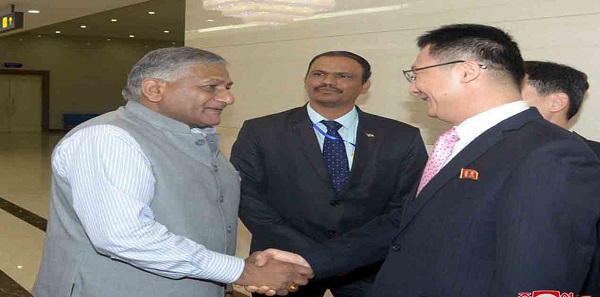
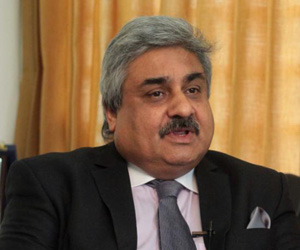




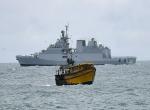
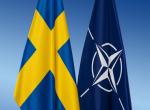

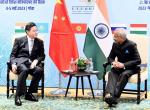
Post new comment